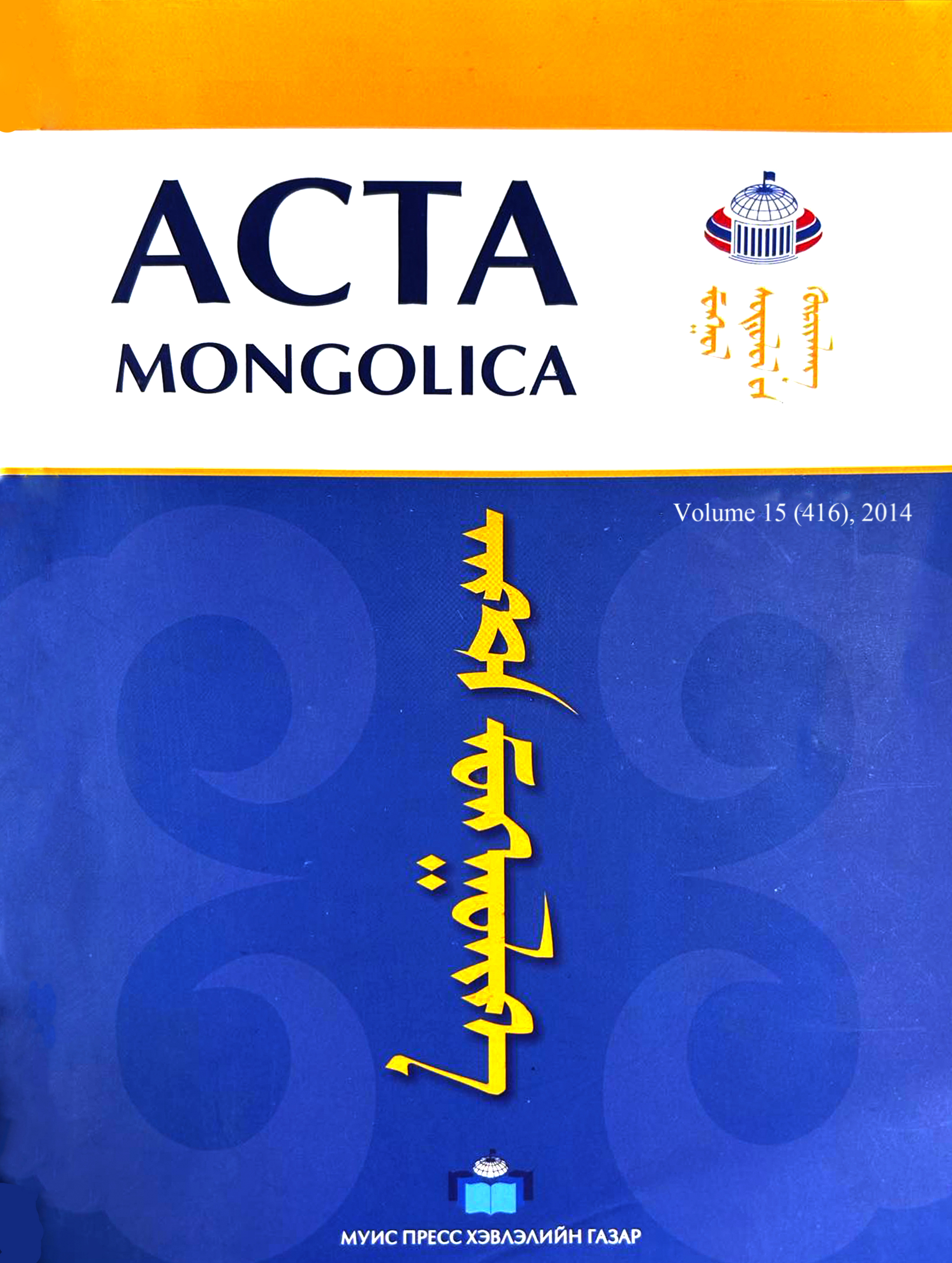Pitch patterns of Mongolian compound place names
Main Article Content
Abstract
Mongolian accent is not distinctive in relation to meaning. With respect to Mongolian accent, not a few researches have been carried out, including studies which claim that Mongolian has stress accent (Hangin1968), pitch accent (Kakudo 1982) and both of them (Ozawa 1994). In recent research Karlsson (2005) clarified the pitch patterns of Khalkha Mongolian, taking the position that Mongolian has no lexical stress. However, the accent of compound words in Mongolian has not been clarified well so far. In this study, pitch patterns of Mongolian compound place names which consist of two words, such as Ʊlaan-baatar and bɔr-nƱƱr, are analyzed, and it is clarified that 1) most compound place names are pronounced not as two words but as a single phonological word, 2) in general the word accent of the first element is preserved and that of the second element disappears, and 3) in some words, the number of syllables, vowel length and syllable structure are related to the pitch pattern.
Article Details

This work is licensed under a Creative Commons Attribution-ShareAlike 4.0 International License.
References
Ichinose, Megumi (1992) ‘Mongorugo no fukugougo no on-inteki tokuchou’ [Phonemic characteristics of
compound words in Mongolian], Hoppou bunka kenkyuu (Bulletin of the Institute for the study of North
Eurasian cultures) 21, pp. 105-119.
Kakudo, Masayoshi (1982) ‘Haruha Mongorugo no pitchi akusento’ [Pitch Accent in Khalkha Mongolian],
Osaka gaikokugo daigaku gakuhou (Journal of Osaka University of foreign studies) 56, pp. 31-49.
Karlsson, Anastasia Muhanova (2005) Rhythm and Intonation in Halh Mongolian, Lund University.
Ozawa, shigeo (1994) Zouho Mongorugo yonshuukan [4-week Mongolian, enlargement], Daigaku shorin.

